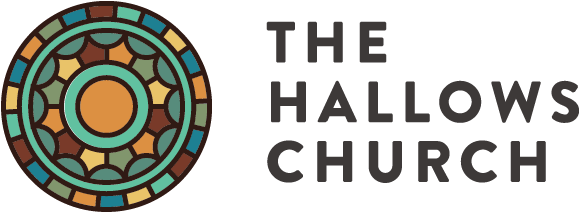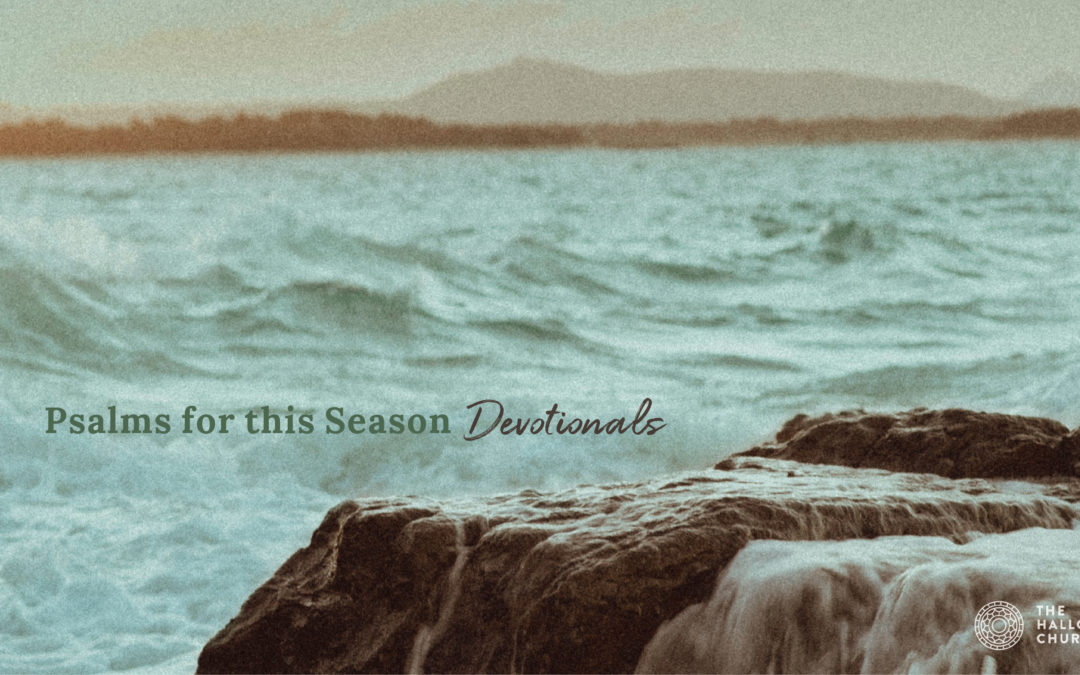Day 10 | Psalm 27
We naturally respond to fear with one of two instincts: fight or flight. Those who fight dig their heels in and hope to overcome their fearful opposition. Those who flee turn their heels and run away hoping simply to live another day. As people of faith, however, our response to fear should be different. We do not fight by drawing upon our own resources only to risk defeat. We do not flee because that only succeeds at extending our enslavement to fear. Instead, we wait for the Lord.
Waiting for the Lord does not mean to be idle. According to Psalm 27, waiting on the Lord involves at least three things:
1. As we wait, we process the implications of our faith.
It means we take time to process the implications of our faith in God. If the Lord is our light and salvation then what reason do we have to be afraid? If the Lord is the stronghold of our lives then who should we dread? If God is for us then who can be against us? This is what kept David’s heart strong and courageous when evildoers rose against him. This truth will keep our heart strong and courageous too.
A common declaration ringing out in the church today is to live by faith rather than by fear. This is easier said than done. Exercising faith is a thoughtful enterprise. We must learn to think through the logical and practical implications of what our faith teaches. Waiting on the Lord means to take time to consider what it means to know God truly and personally.
After laying out the gospel for those who read the Book of Romans, Paul asks,
“What then are we to say about these things? If God is for us, who is against us? He did not even spare his own Son but offered him up for us all. How will he not also with him grant us everything? Who can bring an accusation against God’s elect? God is the one who justifies. Who is the one who condemns? Christ Jesus is the one who died, but even more, has been raised; he also is at the right hand of God and intercedes for us. Who can separate us from the love of Christ? Can affliction or distress or persecution or famine or nakedness or sword? [We might even add at this point—the Coronavirus?] . . . No, in all these things we are more than conquerors through him who loved us. For I am persuaded that neither death nor life, nor angels nor rulers, nor things present nor things to come, nor powers, nor height nor depth, nor any other created thing will be able to separate us from the love of God that is in Christ Jesus our Lord” (Romans 8:31-39).
Such an explosion of confidence and courage happens as we process the powerful implications of our faith.
2. As we wait, we pursue the deepest desire of our faith.
Waiting on the Lord also means we pursue the deepest desire of our faith. Sure, we want to be delivered from whatever assails us. None of us want to contract COVID-19. Such a desire is reasonable and common, but there still remains a deeper desire. David writes, “I have asked one thing from the LORD; it is what I desire: to dwell in the house of the LORD all the days of my life” (Psalm 27:4). When thinking rightly about our God, we only really want one thing from Him which is to be with Him. To gaze upon the beauty of the Lord is our soul’s deepest desire.
There are many things we would like to happen, but our hearts only really need one thing to happen. We want to escape COVID-19. We want to be free to socialize again. We want to go to school and to work. We want to play at parks. We want so many things. But if we had all those things but missed out on the thing, would that be enough for us? Would that conquer our next fear or satisfy our souls in the next season?
We only truly need one thing—that is, to see and to savor the wonder of our God. For when that desire is met, then we are able to handle any outcome of all our other wants. Waiting on the Lord, then, means to seek the deepest desire of our faith. Let’s not sell our souls’ short by settling for lesser wants—including the reasonable and common sense ones. We can have many things, but only one thing truly matters.
3. As we wait, we pray to the caretaker of our faith.
Prayer is the purveyor of desire. So, waiting on the LORD entails praying to the caretaker of our faith. We call out to Him and express our desire for Him. We trust that He will not hide from us. Nor will he abandon us because He cares for us more than anyone else in the world—including our moms and dads.
Prayer is also the posture of dependence. We pray because we need God’s help. Assaults from adversaries attempt to knock us off balance. Our adversaries threaten to suffocate our desire for God and twist our thoughts of God. In such moments, we need God to preserve our faith by showing us the way and leading us on a level path.
Because God is the caretaker of our faith nothing can befall us that He does not permit. David dials into this mysterious dynamic which he felt compelled to pray, “Do not give me over to the will of my foes, for false witnesses rise up against me, breathing violence” (verse 12). But as he voiced these words, he was also processing the implications of his faith. As a result, courage and confidence ignited in his soul once again: “I am certain that I will see the LORD’s goodness in the land of the living” (verse 13). David knew the caretaker of His faith to be sovereign, and David also knew Him to be good. When you belong to the only purely benevolent sovereign in the universe, you can live without fear. You are more than willing to wait for the LORD in the midst of an assault.
Written by Dr. Andrew Arthur | Lead Pastor, The Hallows Church | andrewarthur.info

